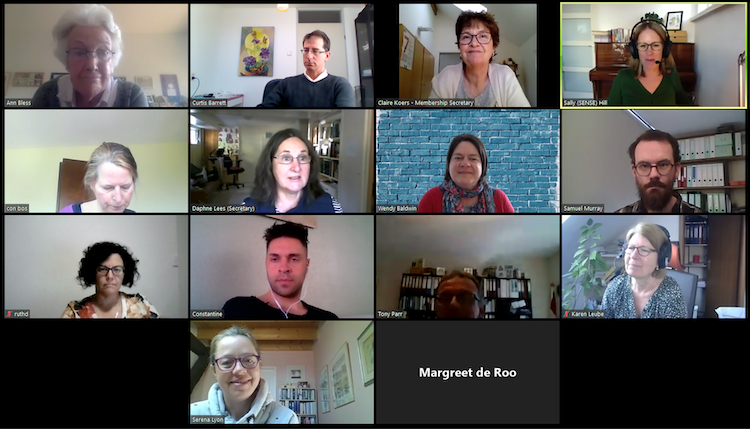
We must take our silver linings as they come. Did you think you’d get a report for an Eastern SIG editing slam from one of your Aussie members who is now back in Australia? Neither did she. But thanks to our new circumstances, about 16 of us were able to meet over Zoom on 6 April with people in the Netherlands, Australia, Switzerland, Germany and Spain.
The setup was that Sally Hill and Daphne Lees had both edited the discussion section of a journal article. Attendees had been sent the section in Word – so we could make our own edits – as well as the PDF of the full article, so we could read the discussion in context.
During the session, Sally shared her screen to show us three pieces of text: the original, her tracked edits and Daphne’s tracked edits. We then discussed how their edits differed, and what further changes we had made.
Apart from the mechanics, a key theme came out of the (very gentle) slam: for an audience of of peers, familiarity with the topic is important. With Daphne having more experience in this field than Sally, she was able to avoid some of queries because she knew a) what the author meant, and b) how to fix any errors. Sally had raised this as a point right at the start, saying that the first thing you need to ask yourself when editing in these specialist fields is ‘Do I understand enough to do this job?’
After we had been through the text, Sally showed us a summary of the types of changes. Most editors will find the mechanical ones and address them in fairly similar ways; these include corrections to prepositions, articles, modal verbs, subject-verb agreement, plurals, punctuation, tenses and style issues. However, there was more variety between Sally and Daphne – and across the bigger group – when it came to redundancy, wordiness, word choice and word order.
There were also some nuances that came from being aware of the cultural background of the author, such as knowing that patients in Chinese hospitals are often cared for by their families. This kind of knowledge can be developed through your relationship with your client. Another good tip was to begin that relationship by sending a small section of edited text, so that your client knows how you work and what kind of edits they can expect.
The session was diligently prepared and masterfully delivered, ending with a whisper about a possible rematch with another two slammers and a third moderator. When we get back to our (new) normal, your Aussie correspondent for one will be hoping for continued international interaction of this quality.